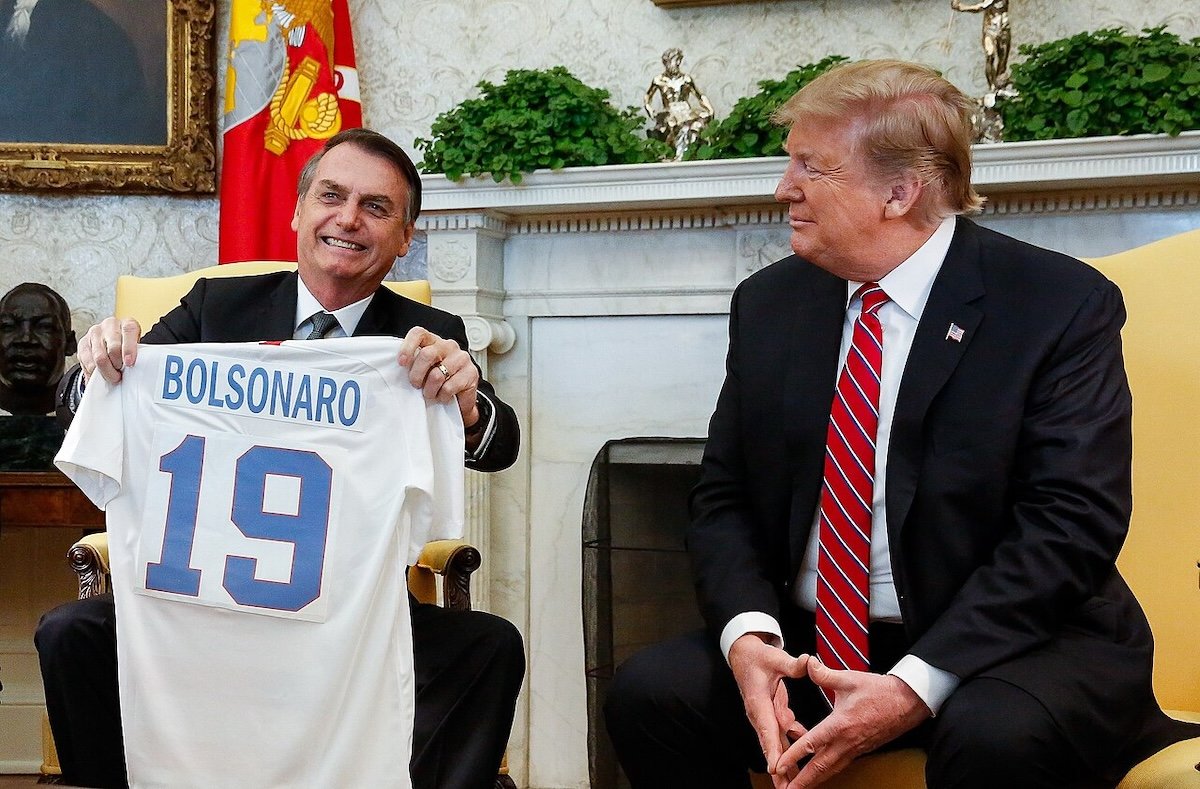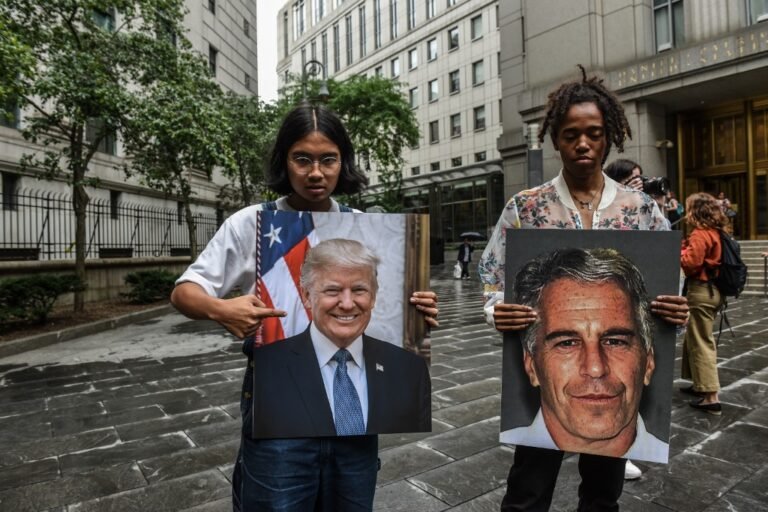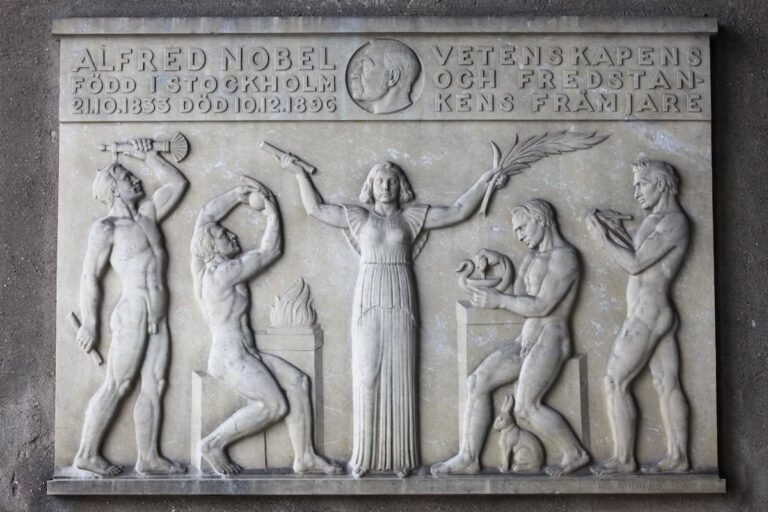How America could become a dictatorship
As we try to think through the potential consequences of the assassination of Donald Trump’s close ally, the 31-year-old conservative activist Charlie Kirk, we need to keep three facts in mind. One is that America is a country in which there are more guns in private hands than there are people. A second is that…
As we try to think through the potential consequences of the assassination of Donald Trump’s close ally, the 31-year-old conservative activist Charlie Kirk, we need to keep three facts in mind.
One is that America is a country in which there are more guns in private hands than there are people. A second is that political violence is commonplace there. And the third is that Trump and some of his most loyal supporters immediately reacted to this terrible assassination by emphasising and exploiting the country’s political divide rather than by appealing for unity.
In Europe, when we think about Trump’s America we mainly worry about the damage he has done to the transatlantic relationship, to our exporters and to the prospects of ending Russia’s invasion of Ukraine. What this tragic episode tells us, however, is that we also need to worry about the stability of America’s democracy, a democracy that in the past has served as a beacon for liberty in Europe too, despite America’s many flaws.
Neither dictatorship nor civil war is inevitable. America has in the past proved itself to be resilient in the face of violent disorder. Its democracy survived the 1960s when both President John F Kennedy and his brother Robert Kennedy, as well as the civil rights activist Martin Luther King, were assassinated.
And it survived the 1970s when anti-Vietnam war protestors were shot dead by the National Guard at Kent State University in Ohio and when four years later President Richard Nixon had to resign over the Watergate break-in against his political opponents that he had authorised.
The attack on America 24 years ago on September 11, 2001, in which Al Qaeda terrorists killed nearly 3,000 people, united a country that, less than a year earlier, had been deeply divided by a presidential election that had to be resolved by a politically partisan Supreme Court.
What has not been seen, however, in these eight postwar decades, is an apparently even balance between the potential for the government using military force to take control and the potential for a spread in political violence among the well-armed citizenry.
That is where the killing of Kirk leaves America today, as a country that is deeply divided politically, in which the use of violence as a political tool is growing and in which the instinct of the Trump administration to use such violence as a pretext for extending its own power is also clearly strong.
These competing forces risk reinforcing each other in a spiral of violence and state intervention.
Concerns about Trump and his supporters exploiting any spiral of violence begin with the fact that he has already been using the National Guard and an expanded and strengthened Immigration and Customs Enforcement (ICE) agency, a body which was born thanks to the September 11attacks, to make arrests, imprison people and organize deportations.
He has focused on cities and states that are governed by the Democratic Party, his supposed opponents and fiercest critics. In his first eight months in office Trump has been testing the extent of his own legal powers while also using these forces to intimidate and undermine all forms of opposition, both political and institutional.
The response that Trump, and some of his closest supporters, made to the Kirk assassination showed that same instinct for politicization.
He and his supporters condemned political violence, but the list of examples they cited deliberately excluded recent examples of violence against Democrats. These have included an assault on the husband of Nancy Pelosi in 2022 when she was Speaker of the House of Representatives, the killing earlier this year of a Minnesota state lawmaker and her husband, and an arson attack against the home of the Democratic Governor of Pennsylvania, Josh Shapiro.
The violence he and his supporters, including Elon Musk, chose to condemn was violence by what he called “the radical left” rather than all political violence.[Note that Tyler Robinson, the suspect now in custody, is from a Republican family, although he has declared no political affiliation.]
The American novelist Ernest Hemingway had one of his characters in The Sun Also Rises deal with a question about how he went bankrupt with a memorable answer: “Two ways. Gradually, then suddenly.” With that phrase, Hemingway could also have been writing the script for how America’s democracy and rule of law could disappear.
This could begin with the low-intensity political violence in his native country that my La Stampa colleague Alan Friedman has warned about, coinciding with a steady expansion of the role of the US military and ICE in law enforcement. Trump’s adoption of a tribal form of politics rather than seeking to unite the nation risks provoking a similar tribalism on the left and a reciprocal use of violence by both sides.[NoteTom Friedman’s plea to Trump to be a uniter rather than a divider.]
Then, prompted by another tragic episode like the assassination of Kirk or a demonstration that turns violent, Trump could declare a national emergency, one in which he suspends civil rights and declares martial law.
By this means, he could postpone elections for an indefinite period, daring his Republican Party in Congress or his Democratic Party opponents to challenge him. At such a time, the likelihood that critics would begin to be arrested on grounds that they posed a threat to national security would be high.
If he does attempt this use of emergency powers and martial law, the crucial question will concern the reaction of the US military and other security forces.
The trial in Brazil last week of Trump’s friend Jair Bolsonaro, in which the president ousted in the 2022 elections was sentenced to 27 years in prison for plotting a coup d’etat, showed the pivotal role played there by the Brazilian military. Some generals plotted with Bolsonaro and were also found guilty. But the main army and air force commanders refused to join the plot. Had they done so, Brazil would again now be a military dictatorship, as it had been from 1964 to 1985.
Trump has criticized Brazilian judges harshly for their verdict against Bolsonaro. Most likely, he can imagine finding himself in the same position as his friend. Or he can imagine himself learning from Bolsonaro’s mistakes and succeeding in his own coup – gradually, and then suddenly.
Formerly editor-in-chief of The Economist, Bill Emmott is currently chairman of theJapan Society of the UK, theInternational Institute for Strategic Studiesand theInternational Trade Institute.
Previously published on his Substack newsletter Bill Emmott’s Global View, this is the English original of an article published on September 13 in Italian by La Stampa. It is republished here with kind permission.







